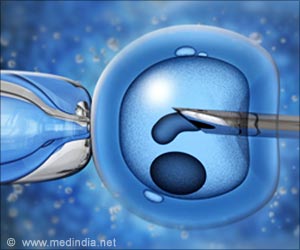
Doctors have a choice of several hormone drugs to stimulate ovaries to produce eggs harvested for in-vitro fertilisation (IVF).
The forerunner, clomiphene, was gradually supplanted in the 1980s by two other groups -- human menopausal gonadotrophins and follicle stimulating hormone.
In recent years, some studies raised safety questions as the drugs boost levels of the female hormones estradiol and progesterone, which are thought to play a role in breast, ovarian and uterine cancer.
But the new study found "little evidence" of a higher risk linked to hormone treatment, its authors said.
Humberto Scoccia from the University of Illinois at Chicago, who took part in the study, said the long-term picture was "generally reassuring."
Advertisement
During this period, doctors diagnosed 749 cases of breast cancer, 119 of uterine cancer and 85 of ovarian cancer among the group.
Advertisement
There was no increased risk among those who took gonadotrophins except in a sub-group of women who remained childless after treatment. The study was not designed to investigate why.
Most previous studies had weaknesses, because they looked at small numbers of patients and only for short periods, Scoccia said.
Scoccia cautioned, though, that continued monitoring was needed to see whether any of the newer drugs present any danger.
Most of the women who enrolled in the study are still relatively young and these types of cancers tend to show up in later years, he said in a press release.
The research was presented Monday in Munich, Germany, at the annual conference of the European Society of Human Reproduction and Embryology, or ESHRE, running until Thursday.
Source-AFP













